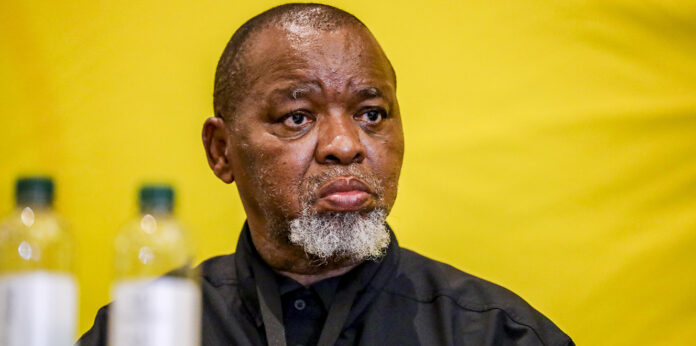The Johannesburg High Court on Thursday interdicted activist Zakhele Zuma from repeating allegations that Mineral Resources and Energy Minister Gwede Mantashe misappropriated R40-million meant for former East Rand Proprietary Mines (ERPM) workers.
Acting Judge Nicoline Janse van Nieuwenhuizen declared the statements “false and defamatory” but deferred the quantification of the R500 000 damages claim and retraction terms to oral evidence, citing the complexity of assessing reputational harm on affidavit.
Van Nieuwenhuizen’s judgment methodically dismantled Zuma’s defence, noting his failure to substantiate claims that Mantashe received funds destined for miners in 1999.
Prima facie defamation
The court found Zuma’s TikTok videos — viewed over 97 000 times — constituted prima facie defamation, imposing a final interdict and liability for damages.
“It is declared that the allegations made by the respondent about the applicant on TikTok and other social media platforms, specifically that the applicant received R40 000 000 from a company called East Rand Proprietary Mines, which was meant for the miners, are false and defamatory,” the judge ruled.
“The respondent is interdicted from doing any interview or posting statements that say or imply that the applicant has received R40 000 000 from the ERPM mine.”
She continued: “It is declared that the respondent is liable to pay damages to the applicant. The quantification of those damages is referred to as oral evidence.”
The court underscored the inherent challenges in quantifying reputational damage via motion proceedings, stating the quantum of damages and the reputational damages the applicant seeks were not readily capable of determination on the papers.
“Accordingly, this court refers the question of quantum to oral evidence.”
Truth and public benefit
Similarly, the retraction demand was deferred, with the judge noting a retraction “will help to secure redress” but requiring evidentiary scrutiny.
Zuma’s reliance on “truth and public benefit” collapsed under judicial scrutiny. The court found his “evidence” — two affidavits from miners — wholly inadequate.
“The ‘affidavits’ do not support the respondent’s version … [They] do not provide any evidence of the alleged monies having been paid to the applicant.
“The respondent can hardly show the truth of the statement, as in his own version, he was informed by other people.”
The judge further rejected Zuma’s “fair comment” defence, ruling that the allegations were presented as fact, not opinion.
The case centred on five TikTok videos published by Zuma between May 24 and June 10, in which he accused Mantashe of withholding R40-million from ERPM miners.
One video featured Zuma outside ANC offices with protesters, declaring: “Gwede Mantashe … took over the case, and then the money was paid to Gwede Mantashe, over R40-million.
“We need him to tell us where the money is.”
Cease-and-desist letter
Mantashe countered that the claims endangered him in mining communities and undermined his roles as minister and ANC chairperson.
Despite a cease-and-desist letter (on June 10), Zuma continued publishing, including a June 22 video. “Whether a court proves you otherwise … you are guilty. You owe something to these people,” he says in the video.
The ruling sets a precedent for social media defamation in South Africa, emphasising that viral allegations require evidentiary rigour.
While Zuma is silenced on the ERPM claims, the deferred quantum phase signals a protracted legal battle. Costs were reserved pending further hearings.
Oral evidence proceedings will be scheduled to determine the financial value of damages to Mantashe’s reputation and the scope and wording of a retraction.



